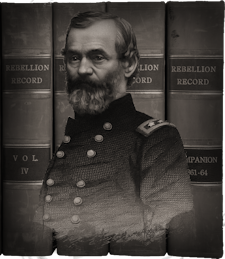February 11.—The Nashville American, of this day, has the following: From the beginning of this war to the present time, the constant cry of the people of the South has been, God and the British are on our side. That cry has seemed to satisfy too many of these whose lives and all have been at stake, that we would triumph without proper energy of our own. The first news that is looked for in the morning paper is the “Latest Foreign Intelligence.” We are like the “unprofitable servant” to whom was given the one talent. Instead of putting it to use, we have digged in the earth and hid that which was given to us. Still we put our trust in God and the British. The disaster at Fishing Creek, and the equally fatal result at Fort Henry, may begin to open our eyes to the fact that God and the British will not help us until we learn to help ourselves. These defeats may also teach us that which every great general found out before he fought many battles, that individual bravery is valueless against organized drill and discipline. It behooves the people of Tennessee, at least to awake to the impending danger. The twelve months system of volunteering will not save us. The hordes of Lincoln have volunteered for the war to subjugate. Will we not enlist for the same length of time to defend ourselves and our homes?
—Dr. Luther V. Belt,, Medical Director to Gen. Hooker’s division, in the National Army, died a camp, near Budd’s Ferry, Md., this evening.
Dr. Bell was a distinguished physician, a native of New-Hampshire, and enjoyed a prominent European as well as national reputation. His family connections, as well as himself, filled many of the most honorable and important positions in the records of his native State. Subsequently he removed to Massachusetts, and took charge of the McLean Asylum for the Insane, at Somerville, in which position he won the attention and applause of eminent European physicians, as well as these of his more immediate surroundings. For several years he was also President of the Massachusetts Medical Society. He had always taken a lively interest in politics, and held many important offices, among which may be mentioned that of the Governor’s Council. He was also several times made a candidate for Congress, and the Gubernatorial chair of Massachusetts.
Immediately following the attack on Fort Sumter, he offered himself to the Governor of Massachusetts as surgeon in any of the regiments which might require his service. His offer was eagerly accepted, and he was appointed Surgeon to the Eleventh Massachusetts volunteers, and with them departed for the seat of war. He was present at the battle of Bull Run, and distinguished himself by his unremitting attentions to the wounded, both friends and foes, and among the last he lingered devotedly among the suffering soldiers on the field, upon the retreat of the forces on Washington. Soon after he was appointed by President Lincoln a Brigade-Surgeon, under General Hooker.
When Gen. Hooker was appointed Major-General of a division, Dr. Bell was promoted to his staff, and since acted as Medical Director.
He was amiable and courteous, and was greatly beloved by all with whom he came in contact, and by none more so than the officers and soldiers of the Eleventh Massachusetts volunteers, who experienced the pleasures and benefits of his generous liberality and eminent medical skill.— N. Y. Times, February 23.
—This afternoon, the Sawyer gun, at Newport News, Va., burst while being fired. Privates Josiah Jones, of Company C, and James Shepard, of Company B, of the Twenty-ninth Massachusetts regiment, were instantly killed, and W. W. Bowman, of Company I, same regiment, was seriously injured. Jones belonged in Greenpoint, Long Island, and Shepard in Lowell, Mass. Four or five other persons, who were in the vicinity, were also injured, but none of them seriously.
—A flag of truce was sent from Fortress Monroe to Craney Island, Va., early this morning, to inform General Huger that the prisoners of war from Fort Warren, had arrived. The bark was accordingly towed up opposite Sewell’s Point, by the steamer Rancocas, and the tug Adriatic; and at about one o’clock, the rebel steamer West Point came out from Norfolk, and the prisoners were transferred. They numbered four captains, three first lieutenants, six second lieutenants, two third lieutenants, and three hundred and eighty four others, rank and file, and colored servants. They were taken at Hatteras and Santa Rosa, and were the last of the prisoners of war at Fort Warren, except Commodore Barron.
—The Richmond Examiner, of this date, publishes an elaborate communication, the object of which is to show that the proper national emblem for the South, would be a “single star.” The editor, however, disapproves the idea, as not original, and suggests that a more appropriate symbol is the “horse.”—(Doc. 34.)



